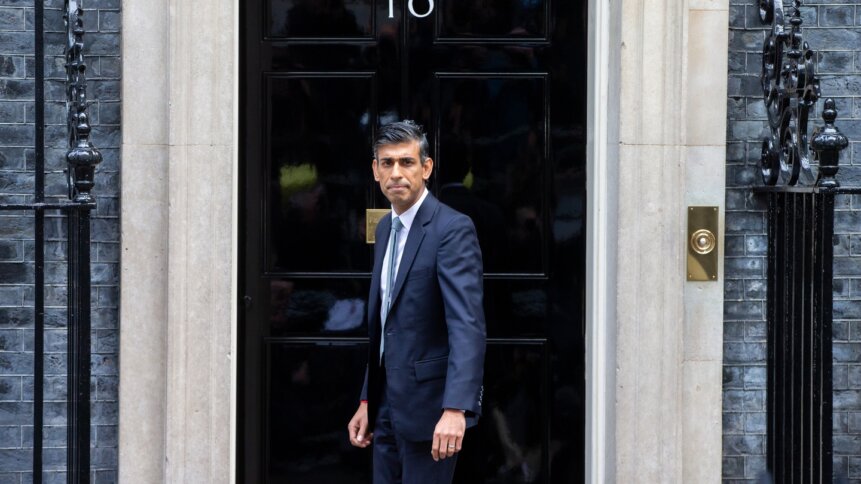Prison for social media managers who fail to protect children?

|
Getting your Trinity Audio player ready...
|
Social media bosses could face prison sentences in the UK if an amendment to a new Online Safety Bill is passed.
Prime Minister Rishi Sunak (the third person to lead the UK in the course of 2022) is facing a significant challenge to his authority, as 36 of his own party’s Members of Parliament (MPs) are pushing an amendment to his planned bill.
Fines vs prison.
The government’s bill as it stands could fine social media bosses up to £18 million – or 10% of their annual global turnover, whichever is higher, if they are judged by UK regulators OfCom to have failed in their duty to protect children from damaging content online.
That might be thought to be a significant penalty, and for many bricks-and-mortar communication companies, it might be. But many social media platforms – and other global tech empires – have shown an almost impressive blindness to the European Union’s data privacy regulations, the GDPR (General Data Protection Regulations), and have shrugged off significantly higher fines.
Just this week, Meta was fined $400 million by the Irish Data Protection Commission for a historic case of data misuse dating back to 2018.
It’s by no means alone. Instagram, also owned by Meta, was fined $434 million dollars in September 2022, specifically for a failure to protect the data of teenagers. And Amazon holds the record for the largest fine for data misuse in Europe so far, an incredible $888 million.
The cost of doing business.
The result of these repeat offenders being substantially fined appears to be a mindset that the fines are simply the cost of doing business the way they want to – including targeting advertising at users by interrogating their data, and sometimes scraping that data for the purpose.
That kind of blasé disregard for the law around data – combined with a need felt by some MPs in the UK to at least equal the EU’s severity in the wake of Brexit – has spawned the Online Safety Bill as a kind of UK-specific version of Europe’s GDPR, with a child-centric twist.
But the 36 MPs who are rebelling against Sunak’s bill are raising an amendment that will turn the maximum fines of the bill as it stands into anything up to two years of prison time for senior social media managers, as a way to personally incentivize them to police their platforms, particularly with the view of keeping harmful content away from younger social media users.
Should social media platforms be worried?
Perhaps more now than in most circumstances. When Boris Johnson won the last UK general election in 2019, he was returned to office with a comfortable majority of 80 seats, allowing him to push almost any legislation through parliament.
But in the wake of Johnson’s scandal-clustered leadership (leading to almost his whole government resigning), and the brief but almost impressively calamitous premiership of Liz Truss, which lasted only 44 days but managed to tank the British economy to the tune of £30 billion more or less in the space of one day, Sunak was brought in very specifically to be a controversy-free candidate to lead the Tories (the UK equivalent of the Republicans) for the two remaining years until the next general election.
Compromise over conflict.
That has so far made him a Prime Minister much more interested in compromise than in conflict. He has already faced a couple of rebellions by his MPs in recent weeks, and on both occasions, he made them go away by adopting a compromise that pleased the rebels.
What’s more, the 80-seat majority of Boris Johnson in 2019 has been whittled down to just 69 in the intervening three years. 36 MPs pushing for an amendment is more than half of that majority. And what is even more than that, the Labour Party (the UK equivalent of the Democrats) has said that it will back the rebels and their amendment. The electoral math seems to be in favor of prison time for irresponsible or negligent social media managers that fail to protect younger users from content they shouldn’t see.
What sort of action would the amendment entail? Everything from ensuring there are parental controls on social media platforms, to actively taking down content, to implementing age restriction policies around certain types of content. That would involve a significantly more hands-on approach to content regulation than most social media platforms currently employ (precisely because of the size of the platforms and the volume of available content).
The ultimate sanction?
There are arguments that enforcing child protection protocols as vigorously as they would need to be to absolutely ensure managers didn’t end up in jail would probably end up with overly restrictive rules that would ban younger users from seeing content to which they had a perfect right.
But with the combination of child protection charities, the Labour Party and the 36 rebel Tories pushing for the stricter option, and with Prime Minister Sunak wanting at all costs to avoid rebellion within his own party (the same thing that ousted his three predecessors from the big chair), there’s every chance that the amendment – or something suitably similar to the amendment – will pass, and eventually form a new legal wake-up call to social media platforms.
Will they adhere to the law if it passes, or will they simply fight tooth and nail to reduce any jail sentences to payable fines?
Time may well yet tell.










